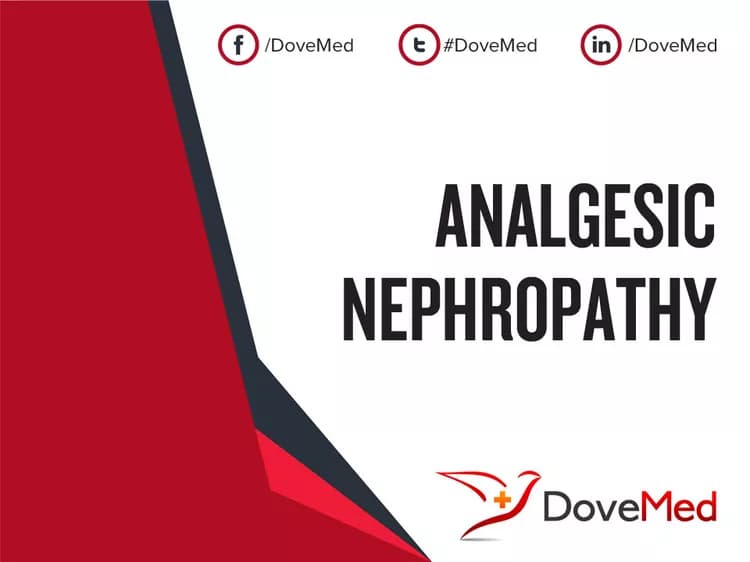What are the other Names for this Condition? (Also known as/Synonyms)
- AAN (Analgesic-Associated Nephropathy)
- Analgesic Abuse Nephropathy
- Phenacetin Nephritis
What is Analgesic Nephropathy? (Definition/Background Information)
- Analgesic Nephropathy is defined as the damage to the kidneys, due to an overuse of painkillers (analgesics), such as acetaminophen, aspirin, ibuprofen, etc., which may occur over a prolonged period
- Generally, middle-aged to elderly adult women are affected by this condition, due to long-term drug abuse. Also, any underlying renal disorder can compound the condition and causes severe forms of Analgesic Nephropathy
- An immediate discontinuation of the analgesic medicine is the first line of passive treatment measure, along with diet, fluid intake modifications, and dialysis or even a kidney transplant in case of end-stage renal failure
- The prognosis depends on the severity of Analgesic-Induced Nephropathy; though, for milder conditions, it is excellent with the stoppage of the painkillers
Who gets Analgesic Nephropathy? (Age and Sex Distribution)
- Analgesic Nephropathy disorder can occur in any individual. But, it is most commonly seen in middle-aged and elderly adults, due to the abuse of painkiller medications (taking more than 6-8 pills every day for several years)
- Both males and females are affected; though, females are most frequently seen with this kidney-affecting disorder
- No racial or ethnic predilection is observed
What are the Risk Factors for Analgesic Nephropathy? (Predisposing Factors)
The risk factors for Analgesic Nephropathy include:
- Use of medications containing more than one painkiller component, such as a combination of phenacetin, paracetamol, salicylamide, caffeine, or codeine
- Advanced age: Elderly adults are higher prone due to long-term medication abuse
- Previous history of any long-term renal conditions
- Smoking and alcoholism dependence
- Long-term painful conditions of the body, such as backache, painful menses, headaches, etc.
It is important to note that having a risk factor does not mean that one will get the condition. A risk factor increases ones chances of getting a condition compared to an individual without the risk factors. Some risk factors are more important than others.
Also, not having a risk factor does not mean that an individual will not get the condition. It is always important to discuss the effect of risk factors with your healthcare provider.
What are the Causes of Analgesic Nephropathy? (Etiology)
- Analgesics or painkillers, such as aspirin and NSAIDs, inhibit the production of a substance, called prostaglandins, which are needed to maintain blood flow to the kidneys
- As a result, the blood flow to the kidney is decreased; this in turn causes destruction of the most sensitive part of the kidney, called papillae (renal papillary necrosis). This causes nephropathy (kidney damage)
- Analgesic Nephropathy can also cause scarring of the kidneys, resulting in shrunken kidneys. This finally leads to end-stage kidney failure
What are the Signs and Symptoms of Analgesic Nephropathy?
The signs and symptoms of Analgesic Nephropathy may include:
- Generalized weakness of the body
- Dehydration
- Increased blood pressure leading to headaches
- Increase in the frequency of urination
- Urine containing blood
- Decreased urine output
- Drowsiness and confusion
- Back pain
- Sensation to vomit (nausea) and vomiting
- Shortness of breath
- Persistent hiccups
- Generalized swelling of the body
How is Analgesic Nephropathy Diagnosed?
Analgesic Nephropathy is diagnosed by physical examination, medical history, and a few tests.
- Physical examination shows increased blood pressure and pallor (anemia) in case of advanced disease
- The medical history can reveal the history of prolonged intake of such analgesics, other underlying kidney disorders, etc.
The following tests may be performed:
- Complete blood count: Decreased hemoglobin(anemia) may be seen
- Urine analysis: The presence of red blood cells and white blood cells are seen
- Urine toxicology screen for the presence of salicylates
- Intravenous pyelogram (IVP): A dye is injected into the blood vessels and the image of kidney structure is obtained. This shows destruction of the papillae (papillary necrosis)
- CT scan of the kidney; shrunken kidneys may be seen
Many clinical conditions may have similar signs and symptoms. Your healthcare provider may perform additional tests to rule out other clinical conditions to arrive at a definitive diagnosis.
What are the possible Complications of Analgesic Nephropathy?
The possible complications of Analgesic Nephropathy may include:
- Increased blood pressure or hypertension
- Anemia
- End-stage kidney failure requiring dialysis or a kidney transplant
How is Analgesic Nephropathy Treated?
The treatment of Analgesic-Associated Nephropathy (AAN) involves the following steps:
- Discontinuation of all painkillers is the first step to preventing progression of this medication-induced disease
- Kidney abnormalities should be treated with changes in diet, fluid restriction, and dialysis
- In advanced disease cases, such as a complete kidney failure, a kidney transplant may be necessitated
- Counseling individuals to use other methods to control long-term pain
How can Analgesic Nephropathy be Prevented?
- Analgesic Nephropathy is a condition that affects the kidneys. It can be prevented in most cases
- The prevention involves limiting the use of over-the-counter painkillers; especially, those medications that contain two key drug components, caffeine and codeine
What is the Prognosis of Analgesic Nephropathy? (Outcomes/Resolutions)
- If Analgesic Nephropathy is diagnosed early, then kidney function can be stabilized by discontinuing the use of painkillers alone
- If long-term analgesic usage has caused severe kidney conditions, such as end-stage kidney failure, then dialysis and kidney transplant may be required
Additional and Relevant Useful Information for Analgesic Nephropathy:
The following DoveMed website link is a useful resource for additional information:
Related Articles
Test Your Knowledge
Asked by users
Related Centers
Related Specialties
Related Physicians
Related Procedures
Related Resources
Join DoveHubs
and connect with fellow professionals


0 Comments
Please log in to post a comment.